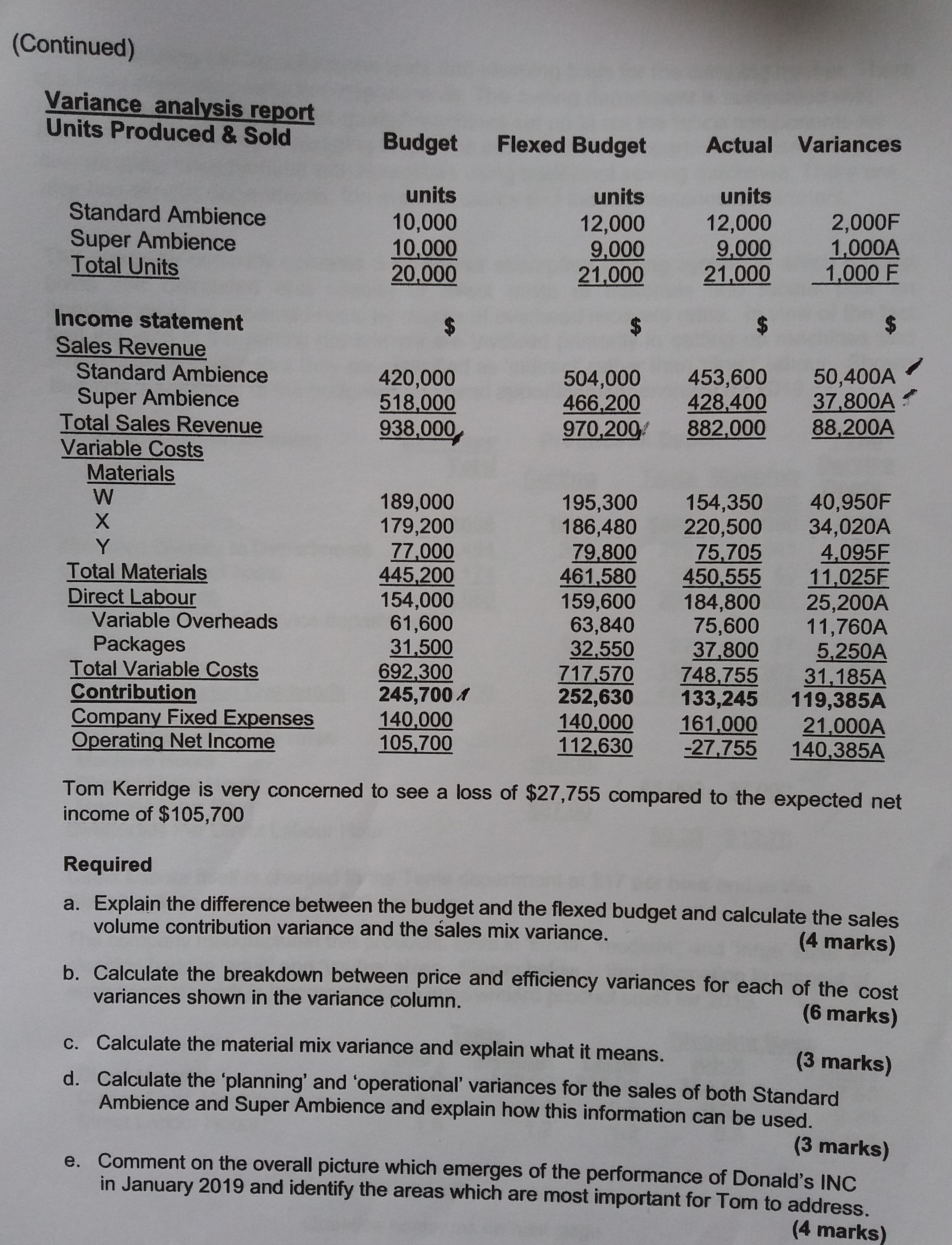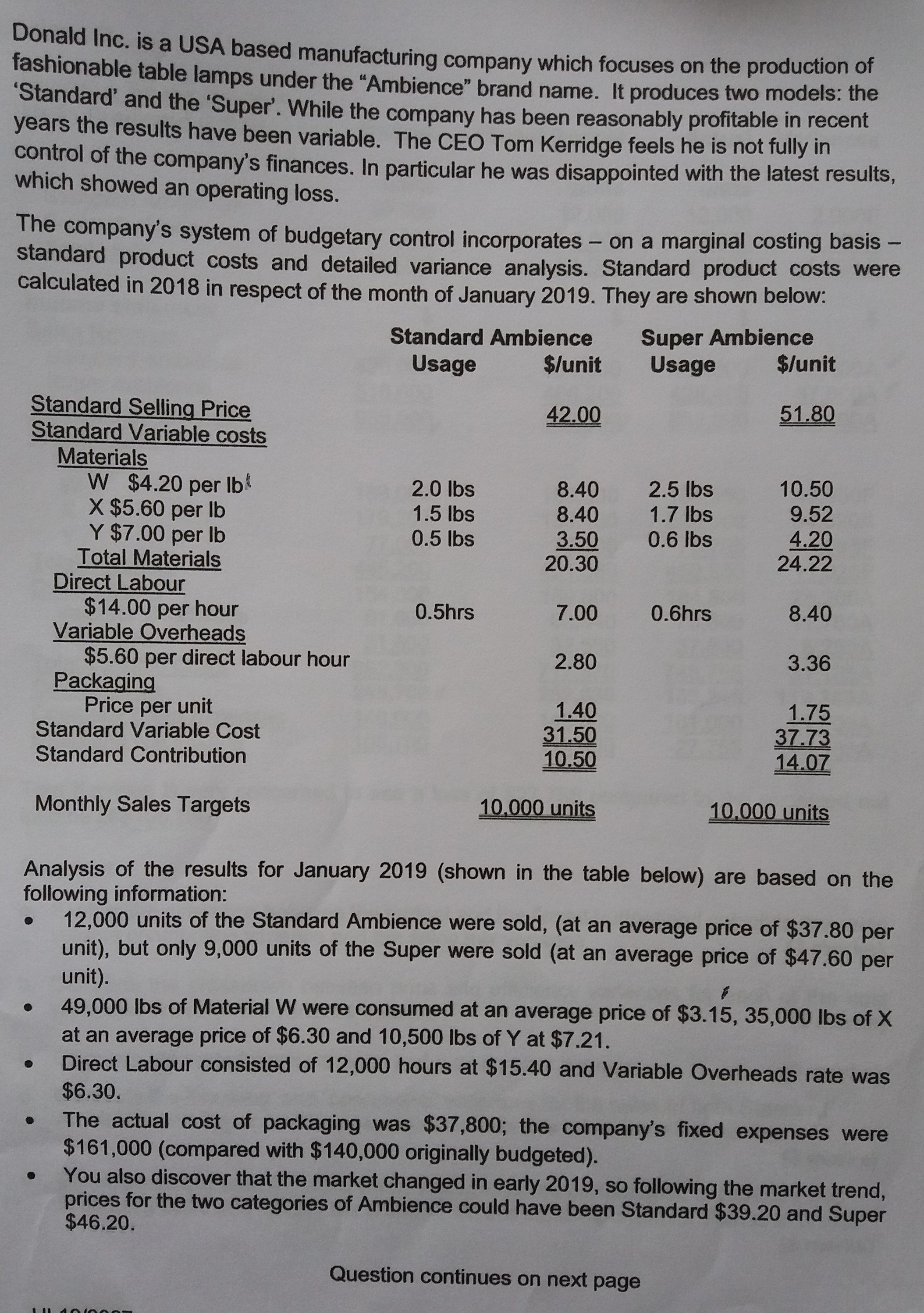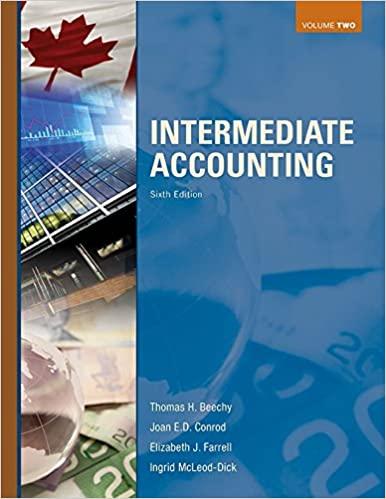answer question c, d and e
(Continued) Variance analysis report Units Produced & Sold Budget Flexed Budget Actual Variances units units units Standard Ambience 10,000 12,000 12,000 2,000F Super Ambience 10,000 9,000 9,000 1,000A Total Units 20,000 21,000 21,000 1,000 F Income statement $ $ $ Sales Revenue Standard Ambience 420,000 504,000 453,600 50,400A Super Ambience 518,000 466,200 428,400 37,800A Total Sales Revenue 938,000 970,200 882,000 88,200A Variable Costs Materials W 189,000 195,300 154,350 40,950F X 179,200 186,480 220,500 34,020A Y 77,000 79,800 75,705 4,095F Total Materials 445,200 461,580 450,555 11,025F Direct Labour 154,000 159,600 184,800 25,200A Variable Overheads 61,600 63,840 75,600 11,760A Packages 31,500 32,550 37,800 5,250A Total Variable Costs 692,300 717,570 748,755 31,185A Contribution 245,700 A 252,630 133,245 119,385A Company Fixed Expenses 140,000 140,000 161,000 21,000A Operating Net Income 105,700 112,630 -27,755 140,385A Tom Kerridge is very concerned to see a loss of $27,755 compared to the expected net income of $105,700 Required a. Explain the difference between the budget and the flexed budget and calculate the sales volume contribution variance and the sales mix variance. (4 marks) b. Calculate the breakdown between price and efficiency variances for each of the cost variances shown in the variance column. (6 marks) c. Calculate the material mix variance and explain what it means. (3 marks) d. Calculate the 'planning' and 'operational' variances for the sales of both Standard Ambience and Super Ambience and explain how this information can be used. (3 marks) e. Comment on the overall picture which emerges of the performance of Donald's INC in January 2019 and identify the areas which are most important for Tom to address. (4 marks)Donald Inc. is a USA based manufacturing company which focuses on the production of fashionable table lamps under the "Ambience" brand name. It produces two models: the 'Standard' and the 'Super'. While the company has been reasonably profitable in recent years the results have been variable. The CEO Tom Kerridge feels he is not fully in control of the company's finances. In particular he was disappointed with the latest results, which showed an operating loss. The company's system of budgetary control incorporates - on a marginal costing basis - standard product costs and detailed variance analysis. Standard product costs were calculated in 2018 in respect of the month of January 2019. They are shown below: Standard Ambience Super Ambience Usage $/unit Usage $/unit Standard Selling Price 42.00 51.80 Standard Variable costs Materials W $4.20 per lb 2.0 lbs 8.40 2.5 lbs 10.50 X $5.60 per lb 1.5 lbs 8.40 1.7 lbs 9.52 Y $7.00 per lb 0.5 lbs 3.50 0.6 lbs 4.20 Total Materials 20.30 24.22 Direct Labour $14.00 per hour 0.5hrs 7.00 0.6hrs 8.40 Variable Overheads $5.60 per direct labour hour 2.80 3.36 Packaging Price per unit 1.40 1.75 Standard Variable Cost 31.50 37.73 Standard Contribution 10.50 14.07 Monthly Sales Targets 10,000 units 10,000 units Analysis of the results for January 2019 (shown in the table below) are based on the following information: . 12,000 units of the Standard Ambience were sold, (at an average price of $37.80 per unit), but only 9,000 units of the Super were sold (at an average price of $47.60 per unit). 49,000 lbs of Material W were consumed at an average price of $3.15, 35,000 lbs of X at an average price of $6.30 and 10,500 lbs of Y at $7.21. Direct Labour consisted of 12,000 hours at $15.40 and Variable Overheads rate was $6.30. The actual cost of packaging was $37,800; the company's fixed expenses were $161,000 (compared with $140,000 originally budgeted). You also discover that the market changed in early 2019, so following the market trend, prices for the two categories of Ambience could have been Standard $39.20 and Super $46.20. Question continues on next page








